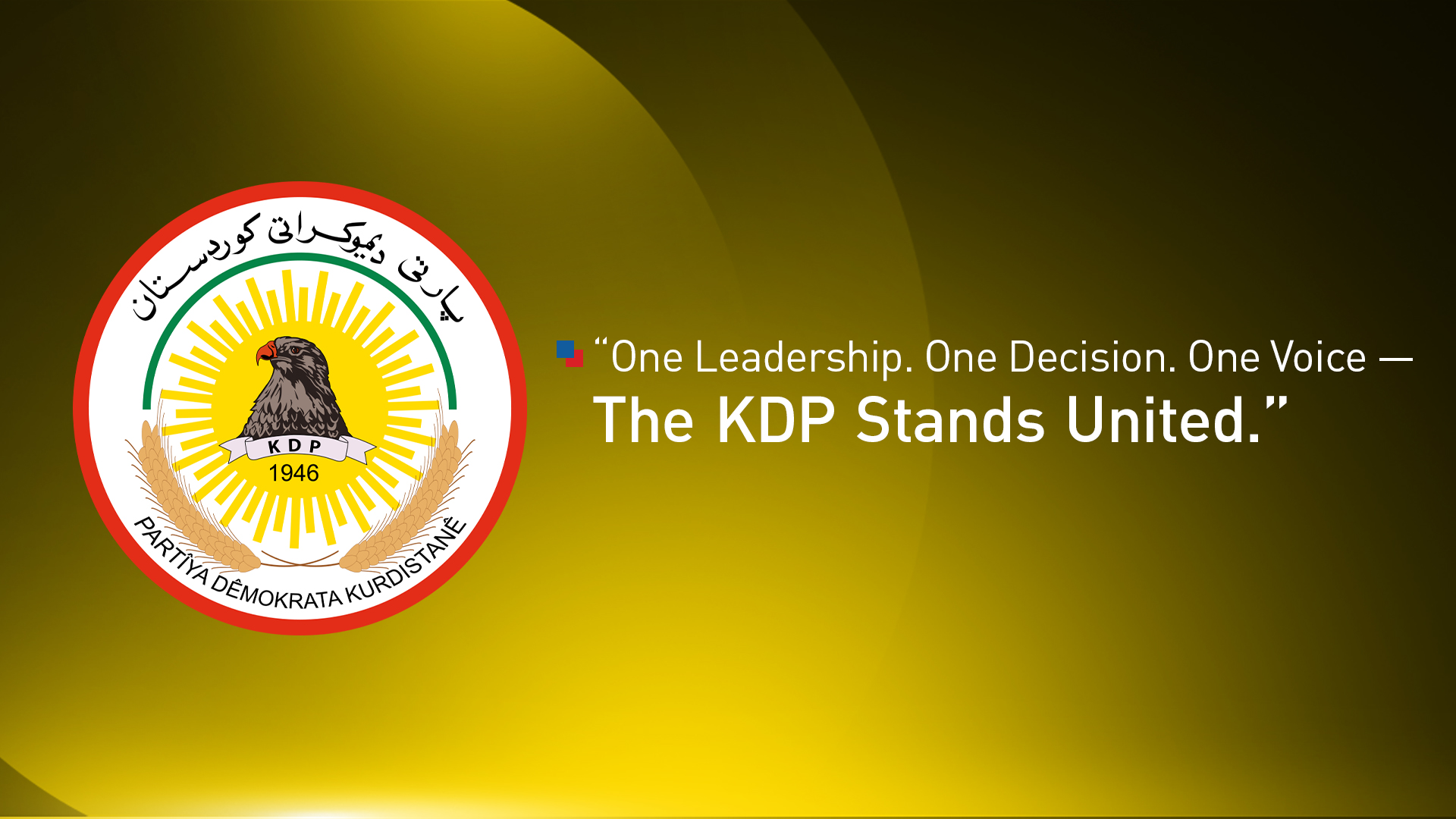KDP Source Responds to Qais al-Khazali’s Remarks, Reaffirms Party Unity and Commitment to Iraq’s Constitution
“Neither we nor the people of Iraq will accept an Iraq where the constitution is violated, power is monopolized, and mafias dominate the state,” read the statement of the KDP media source.

ERBIL (Kurdistan24) — A media source from the Kurdistan Democratic Party (KDP) on Saturday responded sharply to comments made by Qais al-Khazali, leader of the Iran-backed Asaib Ahl al-Haq militia, after he mentioned the names of KDP President Masoud Barzani, Kurdistan Region President Nechirvan Barzani, and Prime Minister Masrour Barzani in a recent televised interview with his own satellite TV.
The KDP media source said Khazali’s remarks were “aimed at creating confusion, distortion, and misleading public opinion,” stressing that the KDP remains “a unified political force with one leadership, one decision, and one voice.”
The media source added that Khazali “should not be deceived by his own illusions that there are divisions within the party.”
The response further underlined that “since the fall of the former regime, no one has worked harder than President Masoud Barzani to rebuild a new Iraq based on federalism and the principles of the constitution.”
It reiterated that the KDP supports a constitutional Iraq “where all sides respect the foundations of partnership, balance, and consensus.”
“The facts are well known to everyone,” the statement concluded. “Neither we nor the people of Iraq will accept an Iraq where the constitution is violated, power is monopolized, and mafias dominate the state.”
The presence of Iran-backed militias in Iraq, including Asaib Ahl al-Haq led by Qais al-Khazali, has long posed a serious challenge to Iraq’s sovereignty and stability. These armed groups continue to operate outside the control of the Iraqi Armed Forces and the Commander-in-Chief.
Despite repeated U.S. and other Western allies' calls for their disarmament and integration into the state’s security apparatus, they have maintained independent command structures, parallel financing systems, and direct lines of coordination with Iran’s Islamic Revolutionary Guard Corps (IRGC).
Asaib Ahl al-Haq, one of the most prominent factions within the Popular Mobilization Forces (PMF), was originally formed during the U.S. presence in Iraq. Over the years, it has evolved into a key instrument of Tehran’s regional influence, involved in suppressing protests, intimidating political rivals, and shaping Baghdad’s foreign policy.
Western and Iraqi intelligence assessments have repeatedly shown that such groups act under Iranian guidance, prioritizing Tehran’s strategic interests over Iraq’s national agenda.
These militias have also been linked to a series of rocket and drone attacks targeting critical infrastructure and foreign interests, including energy facilities and civilian areas in the Kurdistan Region.
Investigations by Iraq’s own security institutions have confirmed that several of these attacks were launched by Iran-aligned Shiite militias. Their operations not only violate Iraqi law but also threaten the country’s international reputation and investment climate.
In contrast, the Kurdistan Region, under the leadership of the Kurdistan Democratic Party (KDP), has continued to serve as a model of governance, development, and relative stability within Iraq.
Over the past decade, the KDP-led administration has overseen extensive progress across multiple sectors — from modern energy infrastructure and revitalized agriculture to tourism, manufacturing, and urban development.
The Region has also succeeded in maintaining reliable public services, including 24-hour electricity through the Runaki Project, clean water systems, healthcare access, and improved education — benchmarks rarely achieved elsewhere in Iraq.
These accomplishments have increasingly exposed the deep governance failures and corruption endemic to many political factions in Baghdad, particularly those backed by militias.
Observers note that figures like Qais al-Khazali have grown uncomfortable with the visible disparity between Kurdistan’s stability and Baghdad’s political stagnation. Consequently, militia-aligned politicians have resorted to propaganda and misinformation campaigns aimed at undermining the KDP and discrediting its leadership.
Observers argue that such efforts reflect a broader attempt to halt Kurdistan’s success story — one that challenges the narrative of militia-dominated politics in Iraq.
As the Kurdistan Region continues to attract foreign investment and strengthen ties with regional and world nations, the contrast between a functioning regional administration and a militia-influenced federal system has become increasingly stark.
Without decisive measures to rein in outlawed militias and assert full state authority, Iraq risks remaining vulnerable to external agendas that obstruct its path toward stability, federalism, and genuine national progress.